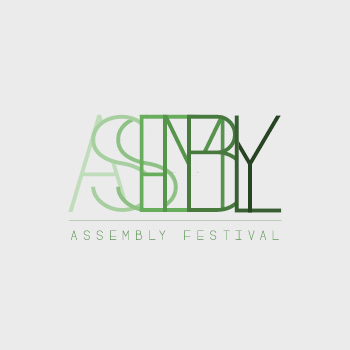Over the course of the spring semester, the Muhlenberg department of theatre and dance is presenting “Assembly,” a project whose purpose is to provide opportunities for performances written and directed by members of the community to be presented onstage. The project contains five total shows, including “Rosy-Crimson,” written and directed by Kim Hoeckele, assistant professor of photography, “Firebringer,” directed by Kiana Homes ‘22, “You are Cordially Invited,” written and directed by Sarah Levine ‘22, “A Feeling Of,” directed and conceived by Maereg Gebretekle ‘22 and “Mutual Aid,” directed and conceived by Ethan Philbrick, visiting assistant professor of theatre.
Recently, department members received an email detailing fundamental changes to the structure and presentation of “Mutual Aid.” The project, which was initially going to be presented as an adaptation of Peter Kropotkin’s 1902 text Mutual Aid: A Factor of Evolution. The aforementioned department email brought up important concerns about Muhlenberg’s history of silencing BIPOC voices in the theatre, and how the themes addressed in “Mutual Aid” raise blaring red flags.
“I am happy that it’s there for people who want to do it in their own way. The theatre department has major restructuring issues that they are in the midst of, and I hope that this is an example of how when you structure a season in this way, it is hard to make an entire season diverse.”
-Brayden Stallman ’23
“When I got involved with the project I was faced with the reality that the ensemble was entirely white and as we began to have in depth conversations about how the world works and systemic oppression and what we want the world to be,” said “Mutual Aid” ensemble member Brayden Stallman ‘23. “[This] really emphasized to me how much those absences were a huge problem that needed to be fixed. The theatre department is still in the middle of reckoning with their history, and frankly should always be, and producing another all-white space does not feel like the direction that we should be headed.”
Other members of the company agreed strongly with Stallman’s line of frustration, and feel that student action is the best way to address and educate the community about racial injustice more specifically within the concept of mutual aid itself, including Andrew Gordon ‘23.
“I believe that the new direction of the Mutual Aid Production, being the practice of mutual aid itself on Muhlenberg’s campus is one that will prove to be more beneficial and substantive than the initial idea of a performance could have provided it’s audiences,” explained Gordon. “Mutual aid is inherently inclusive, and so to have a cast, especially one being entirely compromised as white-identifying performers, would be fundamentally against the tenants of mutual aid as it is practiced and understood on a daily basis. The new direction allows for a truer understanding of what mutual aid is for both the individuals previously involved in creating the performance and for those across the Muhlenberg community who can now practice mutual aid rather than have mutual aid preached to them by those who are just beginning to understand the concept themselves.”
Another cast member, Cailyn Murray ‘23, gave their perspective. “Personally, I’m really excited about the direction that the mutual aid collective has taken. The intentionality behind performance is something that I’ve been thinking a lot about recently, and ultimately the original idea of putting on a production about mutual aid rather than participating in it would have felt disingenuous at best and demeaning at worst. The talks that we had early on in the process as we came to this decision were really eye opening in realizing how we had the opportunity to not only shed light on the injustices and disparities we see at Muhlenberg, but to practice what we were originally going to just preach. I’m hopeful that we’ll be able to do some real good for the community and inspire others to help each other when people in power will not.”
The company has decided to reformat itself from a musical theatre production to a series of seven conversations amongst the student body, which are open to all faculty and students. These conversations are scheduled to take place every other Wednesday from 7-9pm, in the Baker Center for the Arts, rm. 166, which will be announced prior to each meeting.
“I don’t believe that the Mutual Aid Project is the only way for people to be able to make change on this campus or in this world,” explained Stallman, “But I am happy that it’s there for people who want to do it in their own way. The theatre department has major restructuring issues that they are in the midst of, and I hope that this is an example of how when you structure a season in this way, it is hard to make an entire season diverse. There is a large root cause that begins with admissions and selling the department which largely goes back to Charlie Richter and the history of how it has been promoted, but a real diverse season is diverse in every level and it’s important to see and acknowledge how these gaps limit what the department should do.”
Danny Milkis '23 is a Media & Communication student at Muhlenberg who has a specific interest in writing and journalism. In high school, he took part in extracurricular writing whenever possible, and received a Metropolitan Award nomination for his work as a Student Performing Arts Critic. He is ecstatic to have joined the staff of talented writers and editors at the Muhlenberg Weekly, and is excited to learn from this wonderful group of knowledgeable individuals throughout his time at Muhlenberg.






















